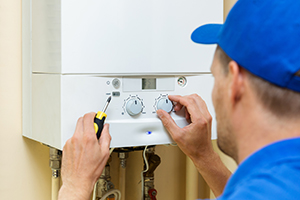David Holmes, Founder of Boiler Guide talks about the problems with the current solutions available and identifies some of the new innovations set to shape how we heat our homes in the future.
The Problem
In very simple terms, the problem with using fossil fuels for heating can be broken down into 3 parts:
-
Burning fossil fuels produces carbon emissions; this is causing global climate change which is now an international concern.
-
Fossil fuels are running out.
-
Fossil fuels are a costly fuel for homeowners to rely on.
We need to completely overhaul the way we generate both electricity and heat for our homes by switching to renewable energy, i.e. energy which is naturally sourced from our planet and will naturally replenish in a human time scale. In 2008, the UK government passed the Climate Change Act in an effort to achieve an 80% reduction in carbon emissions by 2050 while simultaneously:
-
Keeping energy bills as low as possible;
-
Ensuring the UK has a secure and resilient energy system;
-
Avoiding unreasonable upfront costs for homeowners.
The writing is very much on the wall for traditional oil boilers as the government would like to see them phased out by 2025 (although OFTEC are working to find a low carbon liquid fuel to replace oil so homeowners avoid having to replace their whole heating system) and natural gas boilers are heading for the same fate by 2050. However, the big question remains unanswered: how will be heating our homes in 2050?
The Potential Solutions 
-
Air Source and Ground Source Heat Pumps use on a small amount of electricity to draw natural heat from either the air or ground (even in temperatures as low as -20°C) to produce hot air or hot water for taps and central heating systems.
-
Biomass Boilers are fueled by solid biological material such as wood logs, chips or pellets rather than gas or oil. Burning wood is a carbon neutral process which means it only produces as much carbon as the tree absorbed while it was growing.
-
Solar Thermal Panels are installed on the roof and use heat from the sun to produce hot water for heating and taps.
-
Solar PV Panels with electric heating could enable us to harvest energy from the sun to power electric heating systems.
-
Hydrogen Boilers produce no emissions creating only water vapour and heat. 1kg of hydrogen has the same amount of energy as 2.8kg of gasoline.
Switching from the gas network to a hydrogen one seems the logical solution, but that’s not without its challenges. Hydrogen is highly flammable and, while it emits zero emissions when burner, the process of creating it does produce carbon. A massive production system of steam methane reformers will need to be developed to capture the carbon so it doesn’t get released into the atmosphere.
What’s the Future of Home Heating?
New builds are our best opportunity to ensure renewable heating is integrated into our homes for future generations, but the decarbonisation of existing homes is more complex. The CCC (Committee on Climate Change) has recommended an interesting 2-stage approach to the issue:
-
Stage 1: Alongside improvements to insulation, we install air or ground source heat pumps to generate the bulk of the home’s hot water while keeping gas boilers in situ as a backup.
-
Stage 2: Gradually replace gas boilers with hydrogen boilers as the technology becomes more widely available and hydrogen stores are built up.
Lord Deben, Chairman of the CCC, recently commented on the urgency of the issue if the UK is to meet the 80% carbon reduction target:
“The time for the Government to move from theory to practice has arrived […] The future now rests on Government making a quick decision and fully committing to low-carbon heat within the next three years.”






